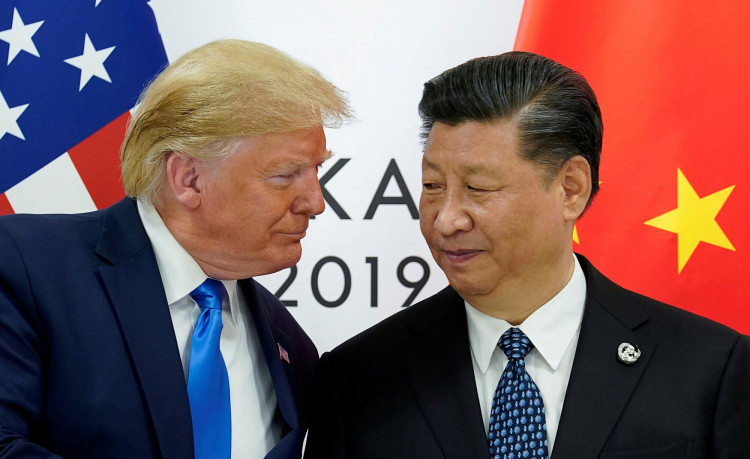United States President Donald Trump renewed his threat of severing relations with China on Thursday, one day after his senior diplomats had a meeting with Beijing and his business representative said he did not consider decoupling the U.S. and Chinese economies a valid alternative.
After their first high-level face-to-face diplomatic discussions in months, the top US representative for East Asia described China-US ties as "tense," though the official disclosed that China has committed to the first part of a trade accord reached this year and that the coming weeks would show if progress had been made.
The opposing positions arose as Washington challenged China's sincerity in correctly reporting on Beijing's latest COVID-19 cluster. Trump expressed on social media that America undoubtedly retains a policy option of full decoupling from China under different conditions.
The president also stated he was reacting to statements by his trade representative, Robert Lighthizer, who has been at the forefront of trade negotiations with Beijing.
On Wednesday, Lighthizer told a congressional panel that Beijing had so far adhered to the conditions of a Phase One trade deal that somehow eased the misunderstanding, and that it was now impossible to decouple the two economic giants.
On Twitter, Trump said that it was "not Ambassador Lighthizer's fault (in Committee) in that perhaps I did not make myself clear, but the US certainly does maintain a policy option ... of a complete decoupling from China," Eric Beech and Andrea Shalal of the Sydney Morning Herald, wrote.
The world's two largest economies were at complete odds over the management of the disease outbreak and the push by China to enforce security regulations on Hong Kong, among several points of tension that escalated this year.
Trump signaled a further deterioration in relations last month, saying he was not interested in talking to Chinese President Xi Jinping right now and suggested that he might even sever ties with the world's second biggest economy.
Meanwhile, US State Secretary Mike Pompeo disclosed that a top Chinese official also confirmed to him the commitment of Beijing to Phase One, which includes the mainland ramping up its buying of US goods. Pompeo met with Yang Jiechi - a veteran figure of Chinese foreign policy - in Hawaii late Wednesday, to iron out simmering frictions.
The Phase One China-US trade accord calls for China to purchase around $200 billion in additional US products and services over two years, but detractors claim the ongoing global health crisis and ensuing economic setbacks will make it hard for China to reach its goal for 2020.






